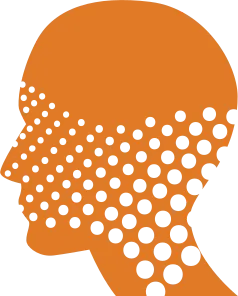Office Policies and Instructions
If you need to cancel your appointment with us, we ask that you give at least 24 hours notice. For appointments that are cancelled within less than 24 hours or for "no show" appointments, you will be assessed a $20 cancellation fee. This will be payable prior to your next visit.
What is CT Scanning of the Body?
CT scanning—sometimes called CAT scanning—is a noninvasive medical test that helps physicians diagnose and treat medical conditions. CT scanning combines special x-ray equipment with sophisticated computers to produce multiple images or pictures of the inside of the body. These cross-sectional images of the area being studied can then be examined on a computer monitor, printed or transferred to a CD. CT scans of internal organs, bones, soft tissue and blood vessels provide greater clarity and reveal more details than regular x-ray exams. Using specialized equipment and expertise to create and interpret CT scans of the body, radiologists can more easily diagnose problems such as cancers, cardiovascular disease, infectious disease, appendicitis, trauma and musculoskeletal disorders.
What are some common uses of the procedure?
CT imaging is one of the best and fastest tools for studying the chest, abdomen and pelvis because it provides detailed, cross-sectional views of all types of tissue.
often the preferred method for diagnosing many different cancers, including lung, liver, kidney and pancreatic cancer, since the image allows a physician to confirm the presence of a tumor and measure its size, precise location and the extent of the tumor's involvement with other nearby tissue.
an examination that plays a significant role in the detection, diagnosis and treatment of vascular diseases that can lead to stroke, kidney failure or even death. CT is commonly used to assess for pulmonary embolism (a blood clot in the lung vessels) as well as for abdominal aortic aneurysms (AAA).
invaluable in diagnosing and treating spinal problems and injuries to the hands, feet and other skeletal structures because it can clearly show even very small bones as well as surrounding tissues such as muscle and blood vessels. In pediatric patients, CT is rarely used to diagnose tumors of the lung or pancreas as well as abdominal aortic aneurysms. For children, CT imaging is more often used to evaluate: • lymphoma • neuroblastoma • kidney tumors • congenital malformations of the heart, kidneys and blood vessels
Physicians often use the CT examination to:
quickly identify injuries to the lungs, heart and vessels, liver, spleen, kidneys, bowel or other internal organs in cases of trauma.
guide biopsies and other procedures such as abscess drainages and minimally invasive tumor treatments.
plan for and assess the results of surgery, such as organ transplants or gastric bypass.
stage, plan and properly administer radiation treatments for tumors as well as monitor response to chemotherapy.
measure bone mineral density for the detection of osteoporosis.
How should I prepare?
You should wear comfortable, loose-fitting clothing to your exam.
You may be given a gown to wear during the procedure.
Metal objects including jewelry, eyeglasses, dentures and hairpins may affect the CT images and should be left at home or removed prior to your exam.
You may also be asked to remove hearing aids and removable dental work.
You may be asked not to eat or drink anything for several hours beforehand, especially if a contrast material will be used in your exam.
You should inform your physician of any medications you are taking and if you have any allergies. If you have a known allergy to contrast material, or "dye," your doctor may prescribe medications to reduce the risk of an allergic reaction.
Also inform your doctor of any recent illnesses or other medical conditions, and if you have a history of heart disease, asthma, diabetes, kidney disease or thyroid problems. Any of these conditions may increase the risk of an unusual adverse effect. Women should always inform their physician and the CT technologist if there is any possibility that they are pregnant. See the Safety page (www.RadiologyInfo.org/en/safety/) for more information about pregnancy and x-rays.
Our practice participates in many insurance plans. DOWNLOAD THE INSURANCE LIST or contact our office. Since each plan has different requirements and coverage limitations and exclusions, it is the responsibility of the patient to understand and meet the requirements of their individual plan. Most patients will have a "co-pay" (a portion of their charges which is not covered by insurance). Those covered by Medicare and some other insurance plans may have "deductibles" as well. Many insurance plans and Medicare do not consider "routine" check-ups (those performed without regard to a specific medical problem) or "screening" laboratory studies to be covered services. Co-pays, deductables and non-covered charges are payable at the time services are rendered. Our billing staff is available to assist you with questions you may have about coverage conditions and payment arrangements. We accept payment by cash and personal check.
Do not take aspirin, vitamin E, ibuprofen, or any pain or anti-inflammatory medications for one week prior to surgery. Most pain medications can increase bleeding so it is important that you let your doctor know if you have taken any of these medications. You may take Tylenol. If you are on coumadin or any other blood thinner, you must see your internist to make sure you are off this medication before surgery. You will need medical clearance from your internist if you are over 65 or if you have any medical problems. Do not eat or drink anything after midnight prior to surgery unless instructed otherwise. Any co-payment or deductible is your responsibility. Call the hospital after 3:00 PM the day before surgery to find out the time you will need to be in the hospital. Ask for same day surgery.
There is a fee of $25 for any check returned by the bank.
